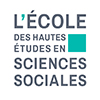Objectifs
Scientific objectives of ESOPP
The history of populations, having been the quasi-monopoly of historical demography in the second half of the twentieth century, is being rewritten today in association with social and political history, and in correlation with the whole of the social sciences. Beyond the “traditional” objects that it shares with demography (fertility, marriage, mortality, migrations, family), the entrance through “Population” allows us to analyse how societies are perpetually shaped and regulated through interaction that is often conflictual and involves social groups and institutions, besides reaching out to environmental questions. Demography, social welfare, health, environment, criteria of segmentation, are part of the Esopp group’s research programme, which conceives these questions as a whole. The exploration of practices, policies and forms of collective mobilisation associated with these fields of action constitute our team’s working horizon.
This exploration is guided by three principles:
The first is the articulation between the study of practices, institutions and knowledge. Far from being reducible to its strictly demographic estimations, population is simultaneously the product of a political and social construction. Political, in the sense that since modern times, it has been considered both as a condition and a demonstration of strength. From this point of view, it is the object of sometimes direct actions (for example migratory policies) and sometimes indirect actions: as Michel Foucault or Jean-Claude Perrot underlined, the entire sphere of economic, social and health policies contains the potential to shape, what was until the middle of the twentieth century called « the quantity and quality of population ». But contrary to what readings upholding the omnipotence of a univocal power would have us believe, this action on population is not a mechanical pressure asserted from above without mediation. Rather, it is the result of a complex interaction between institutions, groups and individuals who are likely to oppose, divert, even shape the policies that are being imposed on them. The analysis of institutional policies and especially state policies too often confuses the stray impulse, propaganda, project and effective application. On the contrary, population, thanks to its specific features, by raising the question of the masses, of diversity and (here we find demography again) of the temporality of phenomena, imposes a practice of a history that would be simultaneously political and social.
This history also includes the history of knowledge. Even if population is not a natural object, it is because it cannot be studied by making an abstraction of its definitions and its scholarly formalisations. Here one must depart from both scientism (the idea of a knowledge independent of policies) and reductionism (the sciences of the social would be a simple rationalisation of ideological positions). One of the objectives of the Esopp group is on the contrary to study the kinds of modalities and the consequences when policies and knowledge related to population are constructed simultaneously. The weight of scholarly representations accumulated over time on the perception of phenomena of population also has to be taken seriously: the genealogy of knowledge, other than its intrinsic interest, here serves to elaborate new approaches.
The second principle, which orients the works of the Essop group, consists in refusing the equation of institutions with State. Population is, by excellence, an object where the limits of prejudices that are so frequent in historiography, are revealed. More than a preserve of state action, it is the stake for struggles between the most heterogeneous authorities: infra-national public structures (municipalities, regions); Churches, whose social influence is sometimes neglected by contemporary historiography; associations whose past role is no less significant than in the contemporary period; advisory institutions and those offering expertise (from “committees” in the nineteenth century to “agencies” today), and of course, firms and trade unions. Studying the respective weight of these organisations, their manner of insuring the involvement of their members, of competing with each other, of allying with the State, of exercising pressure on it or opposing it, contributes to the renewal of the historiography of politics.
Many of our team’s works explore another limitation of state action: incoherencies and conflicts within the political-administrative organisation, revealed by political sociology. Esopp lends particular attention to the inter-ministerial question, a common form of management of public problems since the twentieth century, but which remains on the whole to be elaborated as much as an historical object as an object of political sciences. More broadly, it develops a relational approach that privileges interaction between institutions and analyses the question from the relative place occupied by each one of them. At the same time, some of the researches conducted within the group deal with forms of self-limitation of sovereignty. Bilateral treaties, essential in the field of migrations and social rights and trans-national conventions frame the action of States and require permanent work at multiple scale levels.
A third and final concern that is central to Esopp’s works is that of comparison and contrastive history. First, in geographical terms, it is important to look beyond the French and European framework, as much because of the international overlapping of phenomena of population, as because of the planetary circulation of juridical and learned constructions devoted to them. Because of migration, colonisation and conflicts between States, population while being naturally linked to the nation is an object that widely overflows the limits of frontiers. At the same time, it was one of the first themes that were taken up by the scholarly international forums from1850 onwards: statistics, public hygiene, social reform included it in their Congress programmes. The International law of migration experienced a rapid expansion from the end of the 19th century. Environmental problems such as those linked to pollution began to call for trans-frontier solutions.
Parallel to official initiatives, the associative and trade union milieu organised itself in trans- national networks whose influence on national legislations would often be considerable. To take only three examples, social insurance, the evolution of gender relations, the reconstruction of social stratification through consumption cannot be understood without referring to these international non-governmental actions. The principles and the effects of segmentations and hierarchies among people during the century that can be called the “racial century” (1850-1950), can be understood preferably on a world scale in as much as local or regional environmental concerns since half a century have shifted to global concerns affecting all of humanity.
It is within this frame of trans-national work where individuals, ideas, administrative experiences circulate, that a programme of collective research is progressively being elaborated in our seminar. Our collective research programme deals with the long-term history of action on populations from the modern period to the present day. In the short term, the question is also one of thinking about the most contemporary forms of regulation of our societies, too often considered only in terms of crisis. If the Esopp team includes many historians coming from the Centre of Historical Research or other institutions, it is simply because it associates both political scientists and sociologists belonging to other teams equally.
Based on these principles, the researches conducted within Esopp privilege several thematic axis, which will shortly be defined more precisely on the website.
-
Politics of childhood and family: Christophe Capuano, Caroline Douki, Laura Downs, Antoinette Fauve-Chamoux, Hélène Frouard, Ivan Jablonka, Paul-André Rosental.
-
Populations, migrations, sovereignty: Caroline Douki, Morgane Labbé, Paul-André Rosental.
-
Social welfare, private action and public health: Yohann Aucante, Luc Berlivet, Patrice Bourdelais, Thomas Cayet, Marie-Emmanuelle Chessel, Hélène Frouard, Pap Ndiaye, Bernard Thomann.
-
Social, ethnic, gendered segmentations: Luc Berlivet, Christophe Capuano, Marie-Emmanuelle Chessel, Laura Downs, Antoinette Fauve-Chamoux, Morgane Labbé, Pap Ndiaye.
15/05/2010
 Actualités
Actualités
Aux sources des politiques sociales : décentrer l’histoire du welfare européen (XIXe-XXIe siècles)
 Journée(s) d'étude - Lundi 5 novembre 2018 - 10:00Journée d'étude organisée par Eléonore Chanlat-Bernard (doctorante, CRH-ESOPP) et Federico del Giudice ((doctorant, CRH-ESOPP)Les échelles de la question sociale au XIXe siècle" est la première d'un cycle de trois journées d'étude organisé par Éléonore Chanlat-Bernard et Federico Del Giudice (doctorants EHESS, CRH-ESOPP) avec le soutien de l’IRIS "Études Globales" de l'université PSL et du Centre de recherches historiques de l'EHESS.Cette pre(...)
Journée(s) d'étude - Lundi 5 novembre 2018 - 10:00Journée d'étude organisée par Eléonore Chanlat-Bernard (doctorante, CRH-ESOPP) et Federico del Giudice ((doctorant, CRH-ESOPP)Les échelles de la question sociale au XIXe siècle" est la première d'un cycle de trois journées d'étude organisé par Éléonore Chanlat-Bernard et Federico Del Giudice (doctorants EHESS, CRH-ESOPP) avec le soutien de l’IRIS "Études Globales" de l'université PSL et du Centre de recherches historiques de l'EHESS.Cette pre(...)
Régulations économiques et sociales au XXe siècle
 Journée(s) d'étude - Mercredi 4 avril 2018 - 09:00Le XXe siècle a été celui de la régulation économique et sociale de très grande ampleur, à l’échelle tant nationale que transnationale. Cette journée d’étude, organisée par Paul-André Rosental (Sciences Po-ESOPP), en abordera des aspects centraux (consommation, niveau de vie, protection sociale) dans un cadre comparatif entre Europe, États-Unis et Japon. Elle ne se contentera pas d’observer les modalités macropolitiques et macroéconomiques de(...)
Journée(s) d'étude - Mercredi 4 avril 2018 - 09:00Le XXe siècle a été celui de la régulation économique et sociale de très grande ampleur, à l’échelle tant nationale que transnationale. Cette journée d’étude, organisée par Paul-André Rosental (Sciences Po-ESOPP), en abordera des aspects centraux (consommation, niveau de vie, protection sociale) dans un cadre comparatif entre Europe, États-Unis et Japon. Elle ne se contentera pas d’observer les modalités macropolitiques et macroéconomiques de(...)
« Urgences » : ce que vaut le sauvetage de la vie humaine
 Séance spéciale de séminaire - Mercredi 1 mars 2017 - 15:00Inscrits dans des logiques politiques et économiques, fondés sur des techniques et des savoirs médicaux, les dispositifs mis en place par les sociétés contemporaines pour porter secours aux individus en détresse vitale sont un observatoire de la valeur accordée aux vies humaines. Etudier les principes, ressources et pratiques des acteurs du secours, professionnels et bénévoles, permet de revenir sur l’élaboration de l’urgence comme c(...)
Séance spéciale de séminaire - Mercredi 1 mars 2017 - 15:00Inscrits dans des logiques politiques et économiques, fondés sur des techniques et des savoirs médicaux, les dispositifs mis en place par les sociétés contemporaines pour porter secours aux individus en détresse vitale sont un observatoire de la valeur accordée aux vies humaines. Etudier les principes, ressources et pratiques des acteurs du secours, professionnels et bénévoles, permet de revenir sur l’élaboration de l’urgence comme c(...)
ESOPP
Centre de Recherches Historiques - EHESS
54, boulevard Raspail
F-75006 Paris
ESOPP a été dissout en jnavier 2023.
Illustrations : ESOPP et CEDIAS-Musée social.
Dernière modification :
16 mai 2023 12h07


